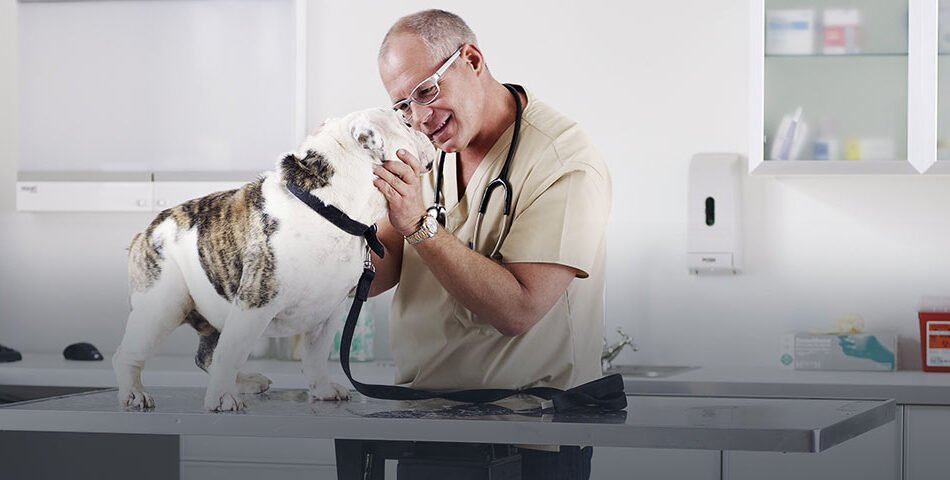Veterinarians recommend pet insurance – the best companies follow these 9 guidelines
It may seem obvious, but veterinarians want to help cats and dogs get the best medical care possible. They don’t want treatments denied because pet owners can’t afford them, or provide less optimal medical care because the best treatment is too expensive. So it should come as no surprise that the American Veterinary Medical Association (AVMA) supports medical insurance for pets:
“The AVMA endorses the concept of pet health insurance that provides coverage to help defray the cost of veterinary medical care.”
According to the AVMA, medical insurance for pets is a good investment if it complies with their 9 guidelines. To help you find the best medical insurance for your cats and dogs, make sure the companies you’re considering can answer “yes” to the following questions based on the AVMA’s 9 guidelines:
1
AVMA GUIDELINE: Pet insurance should require a veterinarian/client/patient relationship
Questions to ask your pet insurance company:
- Do you support the relationship between pet owners and veterinarians?
- Do you collect medical records in a way that reduces strain on others?
- Do you foster communication between pet owners and veterinarians?
2
AVMA GUIDELINE: Pet insurance should allow pet owners to choose their own veterinarian, including specialists and emergency/critical care facilities the pet may need
Questions to ask your pet insurance company:
- Do you cover all areas of the country?
- Are you allowed to visit any veterinarian you choose?
- Am I eligible for reimbursement if I go to a specialist or emergency hospital?
3
AVMA GUIDELINE: Pet insurance should never interfere with the veterinarian’s fee structures
Questions to ask your pet insurance company:
- Do you allow my veterinarian provide the care and treatments he or she recommends?
- Will you accept my veterinarian’s advice and not request less effective procedures just because they are cheaper?
- Will you reimburse based on the actual cost of the procedures and not on what the procedure “should cost?”
4
AVMA GUIDELINE: Pet insurance should be offered only where the policies are approved by the state insurance regulatory agency
Questions to ask your pet insurance company:
- Do you work side-by-side with insurance regulators to offer insurance in the United States, Canada, and Puerto Rico?
- Are your prices fair and reasonable?
- Is your policy proven to cover all unexpected injuries and illnesses?
- Do you make your policy exclusions easy to find and understand?
5
AVMA GUIDELINE: Pet insurance should be consistent with the Principles of Veterinary Medical Ethics and the pet health insurance industry ethical standards
Questions to ask your pet insurance company:
- Do you support the Principles of Veterinary Medical Ethics and live up to the pet health insurance industry’s ethical standards?
- Do you have a mission other than making a profit?
6
AVMA GUIDELINE: Pet insurance should use a licensed veterinarian to assist in claims adjudication
Questions to ask your pet insurance company:
- Do you use claims specialists that have worked in the veterinary field?
- Do your claim specialists understand pet medical terminology, or will my veterinarian need to call in and explain my claims?
- Do your claim specialists have any experience in a hospital environment or have veterinary credentials?
7
AVMA GUIDELINE: Pet insurance should be clear about their policy limits, pricing structure, and optional coverage that might be available to the policyholder
Questions to ask your pet insurance company:
- Are you clear about what you do not cover?
- Do industry experts refine your pricing structure periodically?
- Can I call you any time (mid-day or midnight) to ask questions? Is the number toll free?
8
AVMA GUIDELINE: Pet insurance should be transparent about how the terms and conditions of their plans will impact coverage and cost, including the financial obligations of the policy holder such as co-pays, deductibles, and exclusions
Questions to ask your pet insurance company:
- Do you offer a sample policy so I can see for myself how transparent and reliable the coverage is?
- Do you have educational information to explain how your deductible works?
- Do you give a transparent and clear look into your claims process?
9
AVMA GUIDELINE: Pet insurance should communicate about the fee reimbursement process clearly
Questions to ask your pet insurance company:
- Do you have a system of checks and balances in place to help process claims in a way that is detailed and transparent?
Simply put, when a pet medical insurance policy passes these tests, it gives cats and dogs the best chance at a happy and healthy life. When it comes to Trupanion’s policy, we can confidently answer “yes” to every single one of these questions.
Veterinarians work alongside Trupanion to help keep pets happy and healthy
Veterinarians know a Trupanion policy can help your pet with unexpected injuries and illnesses. That’s why over 2,300 veterinary hospitals and over 10,000 veterinarians have partnered with Trupanion to offer Vet Direct Pay, so you don’t have to be out of pocket for your entire bill.
Source: trupanion.com



